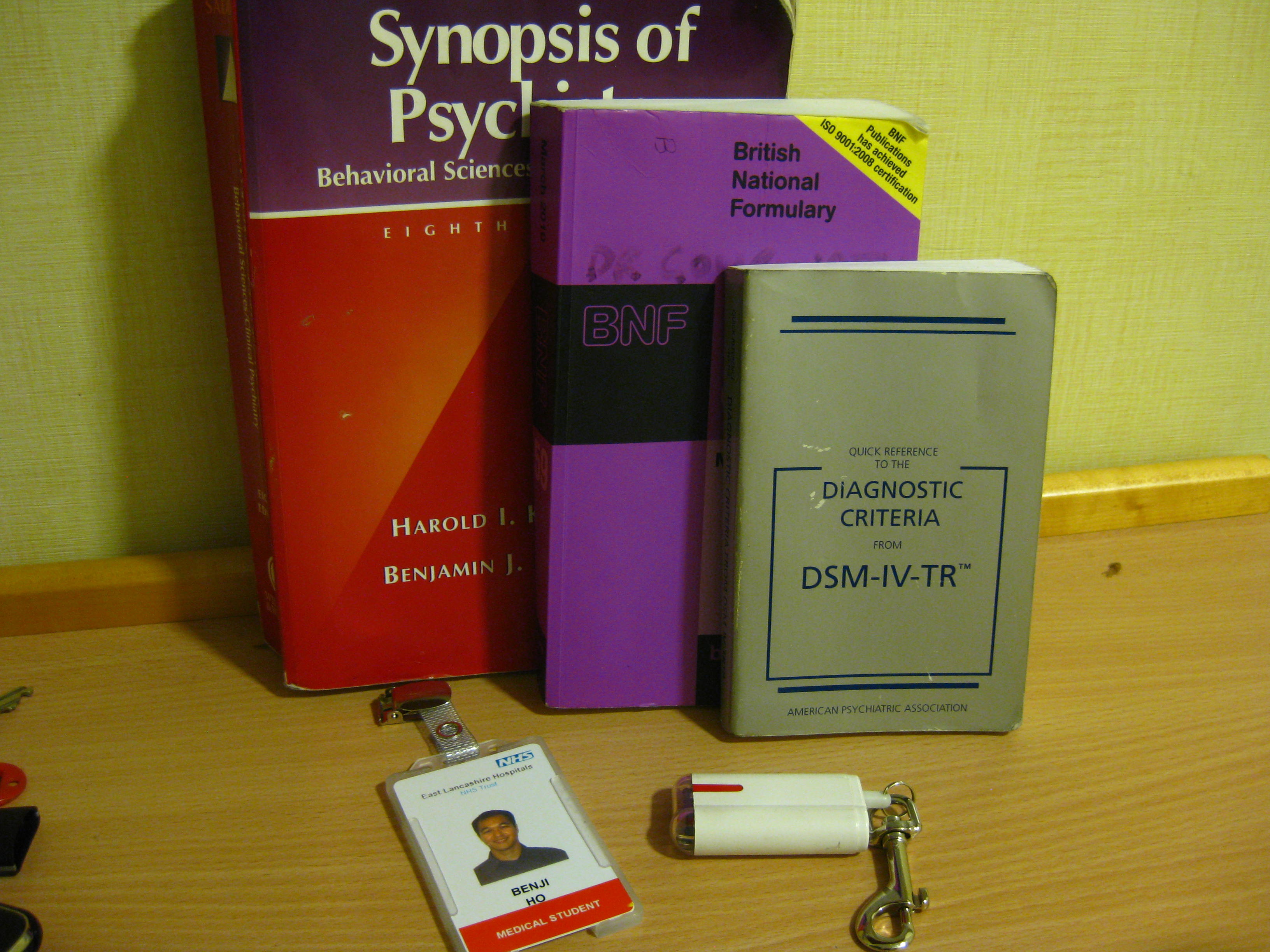Some Thoughts About Psych

It’s amazing how fast my rotation has gone by. Now, with less than a week and a half left, I feel the more I learn about Psych, the more I feel there is to learn. The actual practice of psych is so much more than what we learned in Behavioral Science, ICM, or Pharm, and 6 weeks of rotation cannot do it justice. The knowledge and experience that these doctors have amazes me.
There are some thoughts I’ve had during this rotation:
Back At The Bottom
On the island, as we progressed through the semesters, and eventually reach fifth semester, we feel like we’ve reached the top of the pecking order at school, having more knowledge and more experience than anyone else in other semesters below. Once you start clinicals, however, you again start at the very bottom. Now I realize that all the facts and details that we learned in class that we thought made us sound smart is common knowledge at the hospital, and it’s humbling to feel that as a new clinical student I probably know the least compared to everyone else on the health care team.
Know Your Stuff
The classes one uses the most in Psych are by far Pharm (especially Psych section in Pharm II), Behavioral Science, and ICM, particularly the interviewing part. Medical Ethics is used to an extent as well, especially when you assess whether or not a patient has capacity, and whether or not he/she should be detained involuntarily. Every interview here on the Psych ward is basically an Advanced Interview we do for ICM 4 and 5. The way they taught us to do the psych interview and mental status exam in Behavioral Science I, even the order, is the way they practice it here in the hospital. Know everything that you were taught in these three classes well. Some stuff you learned in Behavioral Science you may feel is less relevant to the actual practice of Psych, like Piaget’s Theory of Cognitive Development (and it probably is), but I got pimped on this on the ward. So for those of you still in Basic Sciences, know your stuff, even when you don’t quite understand why you should know it… you may realize why later on.
Severity
Being in the Psych ward and seeing how these illnesses affect people and their families, I’ve come to realize that Psychiatric disorders are among saddest types of disorder out there. It can severely deteriorate the patient’s quality of life, handicap the patient, and even cut the patient’s life short, just like any other medical condition. It also tremendously affects the family and loved ones of the patient. Can you imagine worrying constantly whether or not you’ll come home to find your loved one overdosed or hanged? Or whether or not you’ll be able to walk out of the house with your wife again, who has become too anxious to go outside? Or a spouse who suddenly spends all the money that you earned because he/she was on a manic episode? I’m not just making these scenarios up… these are real cases I’ve encountered here at the ward, and on the home visits I’ve gone with my attendings.
Often those who suffer from psychiatric illnesses also further suffer from the stigma associated with them in society, especially when looking for a job after their discharge, jobs that could bring back happiness and meaning to their lives. Often times giving a psychiatric explanation for an illness is last resort, because of the stigma of labeling someone with a psychiatric diagnosis.
Real Medicine
In Basic Sciences, I’ve often heard students say that they’re not interested in going into Psychiatry because “it isn’t really medicine.” Being here, you realize that yes, psychiatry may be different from other specialties of medicine, but the problems patients face are real, and often very severe too, that are often not self-limiting, and require intensive medical interventions. It’s not easy to treat patients sometimes and relapse is common. Extracting information from the patient, determining a diagnosis, and planning the patient’s treatment all involve the artistry and skill of the doctor, and in these aspects, psych is no different from any other field of medicine. I’ve gained a lot of respect for psychiatrists during the rotation.
Giving Hope
At first, I felt emotionally drained from hearing all the sad stories that happen to patients. Just when you think a person’s history can’t get any worse, you soon realize that it gets worse. I’ve seen patients who have gone through abuse, rape, attempted suicide, self-harm, neglect as a child, drug dependence, or witnessed loved ones commit suicide. I see patients who hear voices or see things that they do not want to see and will even resort to harming themselves to get rid of them. The psych ward may seem like a sad place at first… with some patients closely monitored every 10 minutes, while others may spend most of their day sitting in solitude in a chair, staring into space. However, to many of these patients (particularly those with insight), this environment of the psych ward is actually very therapeutic. It is a safe place, often safer than where they come from. Their schedules are controlled, and there are others around them who may have gone through the same experiences as they have. The practice of psychiatry gives them hope, and it’s fulfilling to see some of these patients get better, eventually getting discharged, and working together with the mental health team to lay out long-term care plans, living arrangements, and follow-ups, in hopes of a brighter future.














Great post Benji !!
Thanks Jubin! Best of luck on the big test! 🙂
great post!
“and planning the patient’s treatment all involve the artistry and skill of the doctor, and in these aspects, psych is no different from any other field of medicine.” – yes, ALL fields of medicine involve both artistry and skill. but i would argue that psych may challenge your artistry more than other fields!
“I’ve gained a lot of respect for psychiatrists during the rotation.” – sooooo wonderful!! it’s always nice when people appreciate and respect the difficult job, which psychiatrists have!
sounds like you’ve really had an awesome psych rotation…and i can tell that you would be great at psych, or any field which you decide to pursue!! cheers, mate!! 😉
Thanks Kendra!
I am indeed enjoying this rotation, and have some awesome attendings! Wishing you all the best in residency!
Benji
Hi,
I’m new here and I did find a lot of interesting reads in your blog. Have just started blogging recently. I do share the same sentiment about psych. Before i thought it was just a weak field of medicine but having our module for psychiatry two weeks ago opened me up to a lot of science behind it. The work is also emotionally draining. I found myself feeling tired after our patient encounters and I did realize that it took a certain strength to be in psychiatry.
Looking forward to your future posts!
Great post Benji! Really appreciate the positive insight.
Thanks Mina! Best of luck on the rest of the semester!